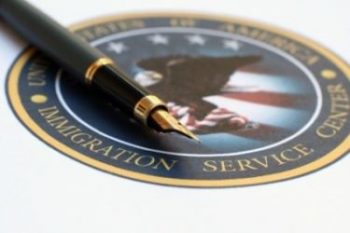Among other reversals of Trump-era policies, President Joe Biden may revoke the public charge rule. A review of the rule was officially ordered in February. The rule has been widely criticized for leading many immigrants to disenroll from Medicaid and other public programs.

Ordering a Review of the Public Charge Rule
In early February, President Biden signed an executive order directing federal agencies to conduct a review of Trump-era immigration policies impacting access to healthcare for immigrants, known as the public charge rule. Specifically, the public charge rule enables the federal government to deny immigrants entry into the U.S. or citizenship if they’re currently enrolled in public programs such as Medicaid.
The executive order also rescinded a memorandum necessitating repayment to the government from family sponsors if relatives are receiving public benefits.
What Exactly Is the Public Charge Rule?
The public charge rule was first introduced as part of the Immigration Act of 1882. It’s a test used for determining ineligibility for residency or immigration status, but the rule has rarely been used. Consulates abroad could use the rule to determine whether an individual is likely to become dependent on public benefits, while the U.S. Citizenship and Immigration Services (USCIS) can use it to deny green cards to individuals who are deemed financially unreliable.
USCIS can use the rule to deny green cards to any immigrants who have previously used Temporary Assistance for Needy Families, Supplement Security Income, Section 8 Housing or Rental Assistance, Supplemental Nutrition Assistance Program, or Medicaid. This has scared many immigrants into disenrolling from these programs.
Critics of the public charge rule have claimed that it functions as a wealth test that prevents immigrants from entering the U.S. based on unreasonable standards. Since the early 20th century, the rule has been rarely used. Former President Donald Trump implied that he would reimplement the rule in 2017, which led many immigrants to avoid public programs that they believed might hurt their chances at citizenship.
The Effects of the Rule
Many healthcare experts have been opposed to the public charge rule and the Trump administration’s reintroduction of it. One organization pushing to rescind the public charge rule has been the American Hospital Association (AHA), which labeled the rule as one of multiple “ongoing critical challenges” in its priority policies outline for President Biden.
The use of the rule under the Trump administration was expected to cause up to 4.7 million noncitizens to disenroll from CHIP and Medicaid, according to one Kaiser Family Foundation report. As a result, uninsured rates increased among immigrant families to reduce their access to adequate healthcare and subsequently worsened health outcomes. In addition to hurting immigrants, a drop in enrollment in Medicaid and other public programs could adversely affect healthcare safety net providers, preventing them from treating all members of their communities and decreasing revenue.
Although the public charge rule isn’t invoked in times of national crises, such as the COVID-19 pandemic, many immigrants are unfamiliar with the specifics of the rule. Subsequently, many immigrants who qualified for public benefits through gainful employment declined to access them.
Previous Efforts to Block the Rule
The Trump administration rolled out the public charge rule in August 2019, at which point multiple lower courts blocked it. Then, on January 27, 2020, the U.S. Supreme Court enabled the implementation of Public Charge: New Ethical Considerations for Adjustment Cases on February 24, as the pandemic began its spread throughout the country.
In November 2020, Cook County v. Wolf resulted in the 7th Circuit Court of Appeals blocking the rule, while now-Supreme Court justice Amy Coney Barrett issued the dissenting opinion that immigrants need to prove that they are financially independent. A month later, the City and County of San Francisco v. USCIS culminated in the 9th Circuit Court of Appeals blocking the rule across California and 14 other states.
Now in 2021 under the new administration, the public charge rule is more likely to be reversed, which the AHA and other critics of the rule are applauding. Of the review, AGA General Counsel Melinda Hatton stated, “We appreciate the administration’s review of this misguided policy and look forward to its reversal.”
Encouraging Immigrants to Enroll in Public Programs
With the reversal of the public charge rule, the hope among AHA and others is that immigrants won’t disenroll from public programs out of fear of potential repercussions, including removal or deportation. While the public charge rule wasn’t likely to lead to many immigrants’ denied entry into or citizenship in the U.S., the specifics of the rule were unclear to many. As more people enroll in public programs, they will access the benefits they need, and revenue for local medical practices is likely to increase as they’re able to treat more residents in the area with compensated care.



